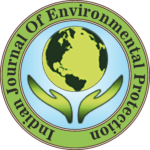IJEP 42(3): 380-384 : Vol. 42 Issue. 3 (March 2022)
Usha Sadasivan1*, Bhuvaneswari Balachander2 and S. Vijayalakshmi3
1. Meenakshi College for Women, Department of English, Chennai – 600 024, Tamil Nadu, India
2. Saveetha Institute of Medical and Technical Sciences, Department of Electronics and Communication Engineering, Saveetha School of Engineering, Chennai – 600 077, Tamil Nadu, India
3. Vellore Institute of Technology, Department of English, School of Social Sciences and Languages, Chennai, India
Abstract
This paper is a reflection on man’s role in the utilization and depletion of God-given bountiful resources on this earth. It expands on the important aspects of theocentrism and its relevance especially in the current situation when we are faced with alarming statistics of terrible natural disasters, most of them caused by man’s indifference and carelessness. Theocentrism challenges the use of the earth’s resources and is very staunch in its approach against the unrestrained materialism and consumerism of today’s society. It challenges mankind to move beyond being selfish by seeking satisfaction from nature and perceiving nature as God designed it. It demands that it is morally right to consume in moderation and recycle or reuse resources to the utmost. This article also chronicles the history of our co-existence with nature wherein we see that it has been influenced by several factors possessing sociological and cultural colouring. There is a growing interest in studying these contexts to understand the implication of such influences on human attitude and behaviour towards nature. A lot has been done to mitigate the mistakes of the past but a lot more has to be done and at a faster pace. The authors have surveyed how people of different age groups perceive this mammoth problem of ecological destruction and devastation taking place around them.
Keywords
Environment, depletion of resources, Human attitude, Society, ecological destruction, Theocentrism
References
- Hoffman, A. and L. Sanderlands. 2004. Getting right with Nature: Anthropocentricism, ecocentricism and theocentricism. J. Organisation Env., 18(2):141-162.
- Passmore, J. 1976. Man’s responsibility for Nature. Philosophical Review.85 (2):282-285.
- Menton, T. 1994. The letters of Thomas Menton in times of crisis. Ed W.H. Shannon. New York.
- Kennedy, Paul. 1993. Preparing for the twenty-first century. Random House publisher.
- O’Connor, C.J.J. 1990. Abortion: Questions and answers. A special edition of Cardinal O’Connor’s newsletter, “From My Viewpoint,”. Catholic New York.
- Lovelock, J. 1982. Gaia: A new look at life on Earth. Oxford University Press, Oxford.
- Derr, S.T. 1996. Environmental ethics and christian humanism. Abingdon Press: Studies in Christian Ethics and Economic Life Series 2.
- Brennan, A. and Y.S. Lo. 2010, Understanding environmental philosophy. Acumen, Durham.
- Singh, R.P. 2005. Environment and Vedic literature. In Readings in environmental ethics: Multidis-ciplinary perspectives. Ed D.C. Srivastava. Rawat Publication, Jaipur. pp 106-114.
- Narayanan, V. 2001. Water, wood and wisdom : Ecological perspectives from the Hindu traditions. Daedalus J. American Academy Arts Sci., 130(4).
- Singh, J. 1961. Great ideas and theories of modern cosmology. Dover, New York.
- Bowie, C.R. and P.D. Harvey. 2006. Cognitive deficits and functional outcome in schizophre-nia. Neuropsychiatric Disease Treatment. 2(4): 531–536. DOI: 10.2147/nedt.2006.2.4.531.
- Merchant, C. 2004. Reinventing Eden: The fate of nature in western culture. Routledge, New York.
- Pandeya, R.C. 1992. Indian attitude towards nature. Geo. J., 26:135-138. DOI: 10.1007/BF00241207.
- Jelinski, Dennis. 2005. There is no Mother Nature—There is no balance of Nature: Culture, ecology and conservation. Human Ecol., 33:271-288. DOI: 10.1007/s10745-005-2435-7.
- Odum, E.F. and H.T. Odum. 1959. Fundamentals of ecology. W.B. Saunders, Philadelphia, USA.
- Hubbert, M.K. 1956. Darcy’s law and the field equations of the flow of underground fluids. Trans. AIME. 207:222-239.
